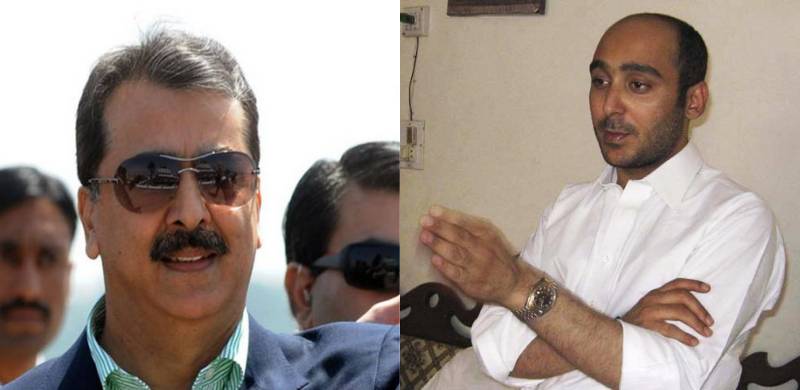
The Election Commission of Pakistan (ECP) has dismissed a plea put forth by Pakistan Tehreek-e-Insaf (PTI) seeking disqualification of Pakistan People's Party (PPP) Senator Yousaf Raza Gilani on the grounds of 'corrupt practices'. The ECP declared that Gilani had no link to the case.
The petition was based on a video that surfaced showing Gilani's son, Ali Haider Gilani, showing PTI members techniques on wasting their votes. Similarly, an audio clip had also been leaked where supposedly Sindh Minister Nasir Hussain Shah was heard 'bribing' four PTI MNAs for their votes.
Ali admitted that it was indeed him in the video, but denied any attempts at 'buying votes'. He said as a candidate's son, it was his right to seek votes from his constituents. He also claimed to have been responding to the PTI lawmakers query about what to do if given 'compromised, pre-marked ballots' by PTI, by showing them how to waste their votes in that case.
Although the ECP dismissed the plea to disqualify Yousaf Raza Gilani, it did however initiate a criminal case against Ali Haider Gilani, as well as the two PTI lawmakers involved, namely Faheem Khan and Captain (retired) Jamil Ahmed Khan. The case was started under Sections 167 (corrupt practices) and 168 (bribery) of the Elections Act of 2017.
https://twitter.com/ECP_Pakistan/status/1519924553497067521
The electoral watchdog announced that it had been 'proven' that the three lawmakers had been involved in corrupt practices, and as per Sections 167 and 168. And that they could be punished by up to three years in jail, or a fine of Rs. 100,000 or both.
Chief Election Commissioner said during a hearing today that the facts of the case had not been presented properly, and out of the 20 hearings conducted, applications for adjournment had been filed 12 times. However, sources say the 12 requests for adjournment were filed by the petitioners themselves.
The petition was based on a video that surfaced showing Gilani's son, Ali Haider Gilani, showing PTI members techniques on wasting their votes. Similarly, an audio clip had also been leaked where supposedly Sindh Minister Nasir Hussain Shah was heard 'bribing' four PTI MNAs for their votes.
Ali admitted that it was indeed him in the video, but denied any attempts at 'buying votes'. He said as a candidate's son, it was his right to seek votes from his constituents. He also claimed to have been responding to the PTI lawmakers query about what to do if given 'compromised, pre-marked ballots' by PTI, by showing them how to waste their votes in that case.
Although the ECP dismissed the plea to disqualify Yousaf Raza Gilani, it did however initiate a criminal case against Ali Haider Gilani, as well as the two PTI lawmakers involved, namely Faheem Khan and Captain (retired) Jamil Ahmed Khan. The case was started under Sections 167 (corrupt practices) and 168 (bribery) of the Elections Act of 2017.
https://twitter.com/ECP_Pakistan/status/1519924553497067521
The electoral watchdog announced that it had been 'proven' that the three lawmakers had been involved in corrupt practices, and as per Sections 167 and 168. And that they could be punished by up to three years in jail, or a fine of Rs. 100,000 or both.
Chief Election Commissioner said during a hearing today that the facts of the case had not been presented properly, and out of the 20 hearings conducted, applications for adjournment had been filed 12 times. However, sources say the 12 requests for adjournment were filed by the petitioners themselves.

